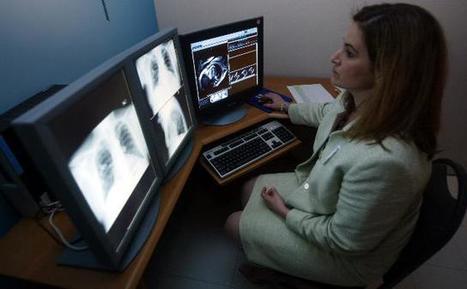A slew of mental health apps are coming out of academic institutions, research clinics and a number of start-ups. They all seek to facilitate the management of serious mental illnesses—such as severe depression, bipolar disorder and schizophrenia.
Via Olivier Janin



 Your new post is loading...
Your new post is loading...









The App "Priori" is developed by researchers at the University of Michigan.
One of the challenge is to calibrate and certify the scientific accuracy of the voice recording system. It depends on numerous parameters, the Smartphone itself, its OS, the artefact removal ...
Nowadays, the deployment of Digital-health App is iterative, their model of development is based on open-innovation and lean start-up.
So it needs data to be measured to set up models. To code the machine-learning metrology system able to interpret the variations of the core-measure among a full set of contextual data.
Want to get in ? Are you bipolar or not, you can enroll to the research program on https://umclinicalstudies.org/HUM00000606
I found this article extremely interesting and thought provoking. Whether we like it or not, technology is growing more and more each day; it is getting to the point where it is nearly impossible to function in society without some form of technology such as a cell phone. If we can create something using this technological growth to help those who suffer from bipolar or other mental illness, that would be amazing. As the article mentioned, these apps and future apps can give doctors and patients indicators, signs, and symptoms of when an episode may be nearing. This could greatly help patients gain some understanding and peace of mind. Something which seems so difficult to cope with when dealing with mental illness is the uncertainty and confusion of the disorder or diagnosis. Another is the stigma attached to the mental health disorder. This app can help with both of these problems. The app can also help create awareness for client's because it helps them notice and acknowledge their actions and behaviors.
I think apps such as this could also greatly help clinicians such as mental health therapists. A persons therapist could look at a client's behaviors and help the client work through what was going on for the client at a particular time. From my experience, sometimes client's have a difficult time remembering events or situations accurately and their perception of an event or situation might be different than a bystanders or a friend or loved one. This is especially true if someone is in a manic episode of their bipolar disorder; they may not remember everything accurately. An app such as this may be able to help with this and help the clinician and client have a more accurate, realistic view of a particular event or period in time.
Although, I still feel sessions and/or appointments with clinicians and doctors are important. I don't think an app or any type of technology can replace personal interaction and discussions on a mental health disorder.